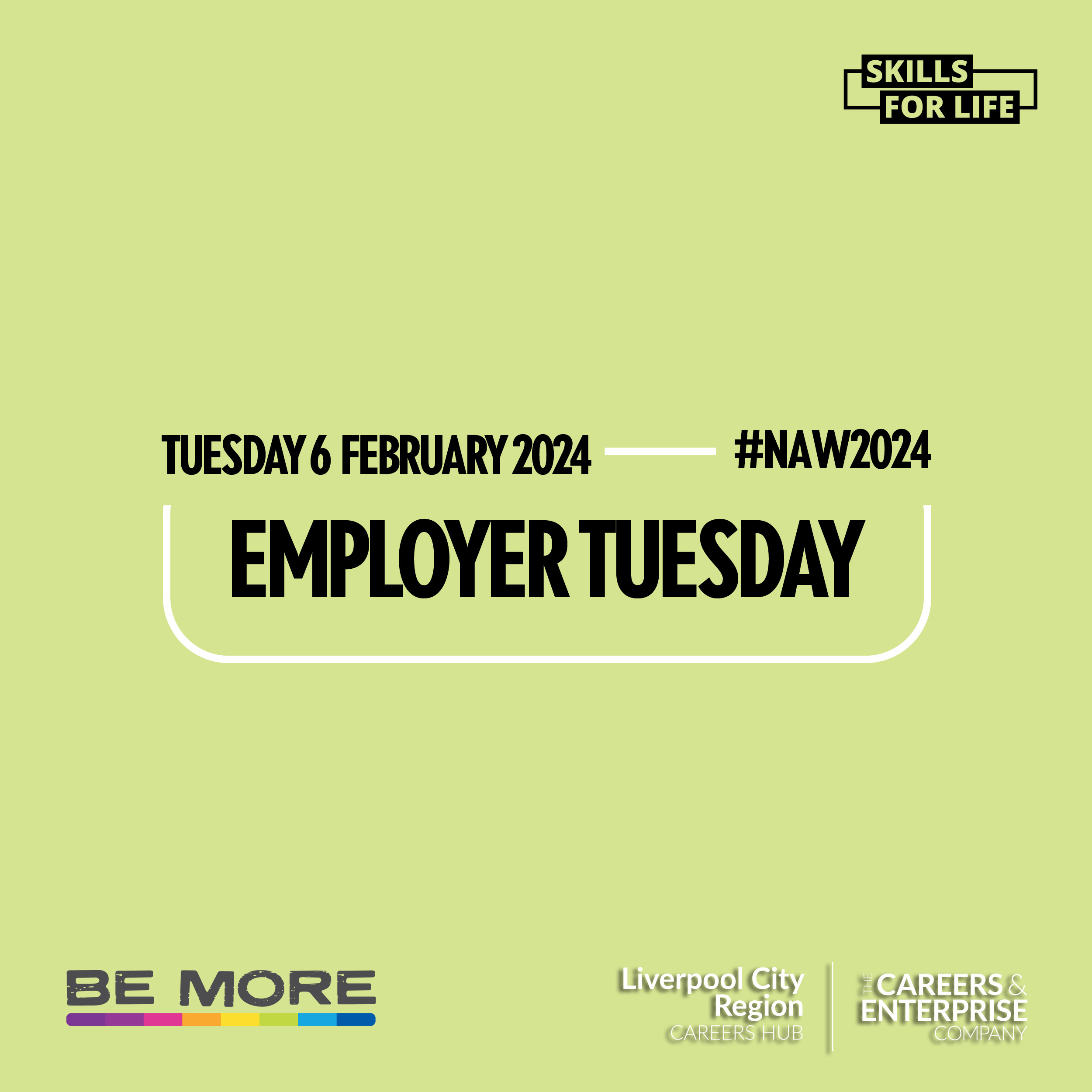EMPLOYER TUESDAY: HOW TO EMPLOY AN APPRENTICE

Taking on an apprentice is a commitment, but it can be very rewarding. Who better to hear from than some of LCR’s employers…
Taking on an apprentice is a commitment, but with the right understanding it can be beneficial for everyone involved.
There are organisations across LCR who are shining examples of the benefit of employing an apprentice. The following employers have received support from the Liverpool City Region Employer Brokerage Service and have received or pledged levy through the LCR Pledge Service.
As an employer it is important that you are prepared for this responsibility and the following guidance is laid out by the government to help employer’s understand their role. Here are some of the things that you should consider before you recruit an apprentice…
What does the apprentice need from the employer?
In order to recruit an apprentice, it is important that you are able to provide them with a genuine job. This means that the apprentice must have a contract with you or a training agency which allows them to complete the full duration of their apprenticeship.
They must also be given the chance to gain the knowledge, skills and behaviours that they need to successfully complete their apprenticeship. As well as adequate support from you as the employer.
“Today’s apprentices are our leaders tomorrow, Apprenticeships future proof businesses. I started as an apprentice and now manage a site.“
Mark Johnson, Manging Director, kids in bloom
You will also be responsible for paying the apprentice’s wage from the first day that they begin their apprenticeship. It is important to note that this may take the form of the apprentice being physically on the job, in off-the-job training, or studying towards English and Maths qualifications. It is vitally important that their wage is in-line with the law, which you can check here.
How should employer’s go about securing an apprentice?
First of all, you must ensure that your prospective apprentice has the right to work in England and that they spend at least 50% of their working hours in England.
As an employer, you must find a main provider for the apprenticeship and agree on the cost. This total cost will include training costs, subcontracted training and the end-point assessment (for apprenticeship standards).
“We are so proud of the amazing staff members who are currently working towards qualifications. We have seen first-hand the value in equipping employees with the skills and qualifications needed to progress in their careers.“
Cair Mcdermott, l&d manager, autism initiatives
When negotiating with the provider, you should ensure that they have considered any prior learning that the apprentice may have undergone, which may reduce the content and length, and therefore the price of the apprenticeship. This is to ensure that funds are not used to pay for skills the apprentice already has.
You have employed an apprentice, what now?
Once you have the apprenticeship in place and the apprentice is to begin working for you, there are a number of things to do.
As a legal requirement an apprenticeship agreement must be signed by you and the apprentice to confirm employment arrangements. You must also sign a commitment statement, along with the apprentice and the main provider to set out the training plan.
“We would whole-heartedly recommend considering an apprentice, whatever sector your business falls in to. The impact that they have in helping us to deliver a sustainable, high quality service to our hospital and supporters, and the contribution they make to the team, is unquestionable.”
Alder Hey Children’s hospital
If you pay the apprenticeship levy, then you must record the apprenticeship details, or ensure that the main training provider has done this.
As part of your commitment to the apprenticeship you must check that your apprentice is participating in their learning and conduct regular progress reviews with the apprentice and main provider.
As with all employees, ensuring that they are being paid the correct amount both by law and in-line with the employment agreement you have set out is essential.
“The apprenticeship levy funds (transferred through the LCR Pledge) have allowed our organisation to continue to offer great opportunities for people to gain new skills and knowledge. We are committed to growing our own talent via the apprenticeship route and can provide great mentoring which will help shape the future of our organisation“
bev baker, learning and development co-ordinator, brothers of charity
As an obligation to the main provider, the employer must provide evidence of the apprentice’s eligibility at the start of the apprenticeship and going forward must inform them of the apprentice’s average weekly hours and changes to working patterns. If you receive any additional payments to you due to the apprentice’s characteristics, then you must have have evidence of this.
For more information on how to advertise apprenticeship vacancies, you can visit Recruit an Apprentice.
Employer’s play a vital role in ensuring that people who undertake an apprenticeship, do so successfully. If you are an employer, then you should consider supporting someone in their career journey through an apprenticeship and in turn gain a valuable employee with the exact skills you are looking for.
 Afrikaans
Afrikaans Arabic
Arabic Chinese (Simplified)
Chinese (Simplified) Dutch
Dutch English
English French
French German
German Greek
Greek Hebrew
Hebrew Italian
Italian Japanese
Japanese Korean
Korean Kurdish (Kurmanji)
Kurdish (Kurmanji) Latvian
Latvian Lithuanian
Lithuanian Persian
Persian Polish
Polish Portuguese
Portuguese Romanian
Romanian Russian
Russian Slovenian
Slovenian Spanish
Spanish Sundanese
Sundanese Ukrainian
Ukrainian Urdu
Urdu Welsh
Welsh